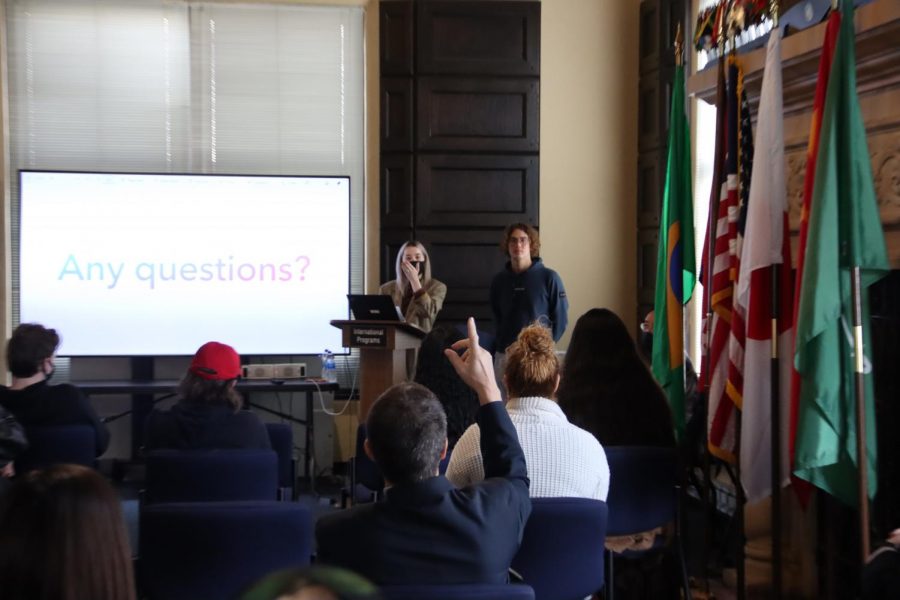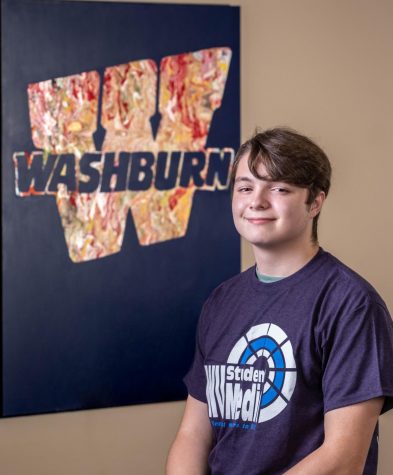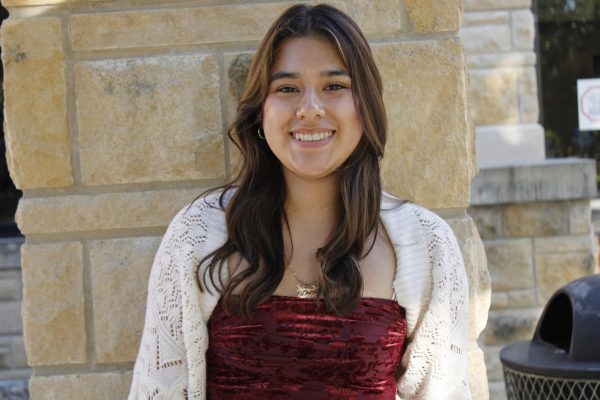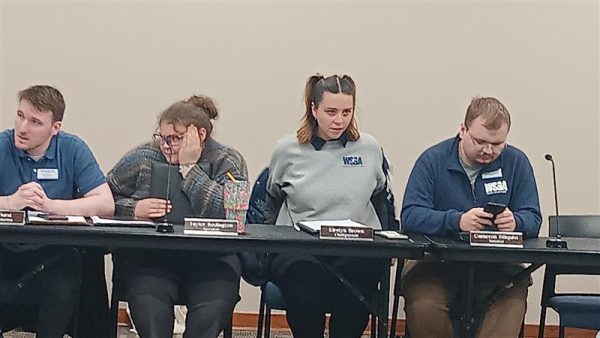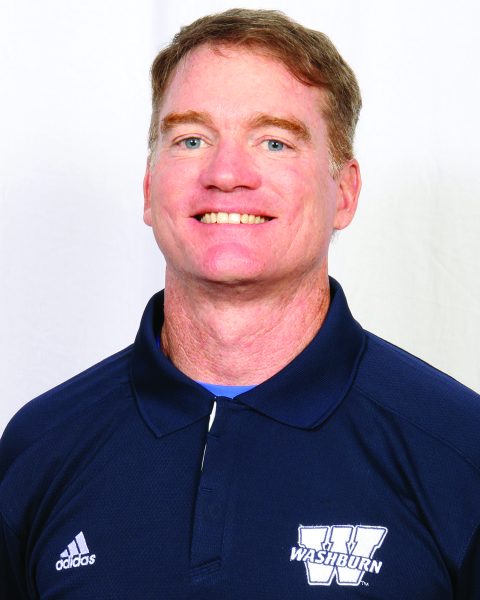Organization brings Russian students to America
A faculty member asks about the differences of student life between Russia and America. The Brown Bag International Lecture on Nov. 3, 2021 at the International House.
Anastasia Lurkova and Vladislav Baidin are two foreign exchange students from Russia through the Year of Exchange in America for Russians program. The two gave a presentation for people at the International House on Nov. 3 for the Brown Bag International Lecture and offered to take questions after.
They went into detail about where they are from and the differences between Russian universities and American colleges. Some of the things they talked about were school related while others were about social events and differences in society.
One of the differences between the schools in each country is how higher education is set up. In Russia, it is possible to get a free education, as long as you pass the required exams to get the free education. If you do not pass the required exams then you will have to pay for the course.
Another aspect of Russian schooling is the rules about what classes you can take, and what you have to do to take them. Every course has an entry exam. Some exams are to get into the class while others are to see if you are more advanced than the other students in the class. A few of the exams are actually just papers with weird prompts and/or discussion questions. The exams are required for all students to take, meaning that everyone will follow the same initial path. Russian colleges tend to keep the same students in classes together and don’t give students as much control over the classes they are going to take.
Both Lurkova and Baidin had lots of jokes about this topic. Baidin explained that in Russia all his classes were pretty hard and he didn’t choose them, but when he came to Washburn he got to pick his classes. He had the whole room laughing when they asked him what classes he is in, and the first one mentioned was yoga.
With class choice being limited, it is challenging to pick different classes when you switch your major. To change majors, you would need to take all the exams and write all the papers that the students in that major had to do to get in, while performing as well as the other students. Deciding to change majors and/or classes is not an easy decision to make because of the exams, but you would also have to think about the length of the classes. Most classes in the Russian university school system are one and a half hours long according to Lurkova in her presentation.
“No discussion in classes, just write down what the professor is saying,” Lurkova said.
This note-based class structure can be helpful for some students and detrimental to others. However, most of the classes are set up as pass-fail, and if you do well in your classes it might not be required to take the final exam.
Lurkova and Baidin also talked about the way they lived their lives in Russia. Lurkova is from Vladivostok, Russia and Baidin is from Nizhnevatovsk. It is common for students to decide to go to a university that is close to home. A big reason most students decide to do this, is there really aren’t many universities that have campuses. Lurkova’s school had a campus but Baidin’s did not. Baidin said that he would have classes that were 30 minute drives apart. Lurkova’s college campus was actually on an island and it only took her 20 minutes to get there.
With not having a campus, the schools have to take a lot of considerations into mind, like the weather. In Russia it’s a pretty standard rule that if the weather gets to negative 32 degrees you don’t have class. With Baidin coming from further north in Russia, it was common for that to happen in the winter. For Lurkova, who lives farther south, this rarely happens. Nevertheless, that is a big change with how American schools operate.
For Baidin and Lurkova, they don’t choose the college, the college is chosen for them after they take a survey. The culture of the schools could vary, but they both said that Washburn was a nice and outgoing culture. They said in Russia it’s very rare to have a random person come up to you and give a compliment, but it has happened multiple times since they have been at Washburn.
When asked about what they did for fun In Russia, their answers surprised some people before they remembered the differences in societies. Russia has different laws about the legal drinking age, so when someone asked what they do at parties, the audience laughed when Baidin and Lurkova admitted they drink.
One of the biggest cultural differences is that In Russia people will get higher education because it’s what you are supposed to do, and they will rarely use that education in the jobs they have.
After the presentation, Andy Vogel, coordinator for the international programs at Washburn shared his excitement for the YEAR program.
“I think it’s incredible to have such diversity from Russia on our campus and the YEAR Program provides fantastic opportunities for global understanding and peace,” Vogel said.
The presentation was certainly a hit among students and faculty.
Edited by: Ellie Walker, Kyle Manthe
Your donation will support the student journalists of Washburn University. Your contribution will allow us to purchase equipment and cover our annual website hosting costs.



